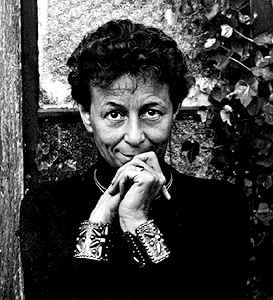A Quote by Warren MacKenzie
Bernard [Leach] knew Ben Nicholson, Barbara Hepworth, Terry Frost, Peter Lanyon, Johnny Wells. I can think of a number of people that we met there just because we were living with Bernard. Some of them became our friends, particularly the younger artists, but we were privileged to at least meet and talk with the older artists also. And they would come to dinner, and we would simply be included in the conversation, which was quite fascinating.
Quote Topics
Also
Artists
Barbara
Became
Because
Ben
Bernard
Come
Conversation
Dinner
Fascinating
Friends
Frost
Included
Johnny
Just
Just Be
Just Because
Knew
Least
Living
Meet
Met
Nicholson
Number
Older
Our
Particularly
People
Peter
Privileged
Quite
Simply
Some
Talk
Terry
Them
Think
Wells
Were
Which
Would
Younger
Related Quotes
Friends of Bernard's [Leach] came to visit, and when we went to London, we were given introductions to people like Lucie Rie, Hans Coper, Richard Batram. All these people were, let's say, made available to us by a friendship with Leach. In addition there was a potter's group - what was it called? I think it was called the Cornish Potters Society, but I'm not sure of that. Anyway, they had meetings and we would go with Leach to these meetings and meet other potters, and they would have programs where they would discuss pottery and people would interchange ideas.
We had a wonderful trip, a seven-day trip, talking and sitting in the sun and so forth [with Bernard Leach]. And as we were approaching England, Leach said, "Do you have a place to live?" And we said, "No, we didn't." We hadn't worried about that. But Bernard had just separated from his second wife, which we had not realized, and Bernard was a person who could not stand to live alone. So he said, "Would you like to share my house with me?" Naturally we said yes.
We did respect [Bernard Leach], although we also were willing to challenge ideas and at least put forth our feelings about the way the pottery was run, about things that were done, about the pots we were making, etc. And we would get into sometimes some very fierce arguments. We'd be shouting at one another because of disagreements.
Bernard [Leach] had acquired many [Shoji] Hamada works. Some of them, it was interesting - first of all, Hamada worked in St. Ives for about four years before returning to Japan to start his own pottery. He had exhibitions in London, and if these exhibitions didn't sell out, the galleries were instructed to send the remaining work down to the Leach Pottery, where they would go into the showroom for sale. If Bernard saw one that hadn't sold that he really admired, then he would take it (he would buy it), and it would go into the house.
I think the entrepreneurial activities that make art visible and attractive are what lure people into the amusement park that SoHo has become or that Bushwick or Williamsburg has become. It's not that outsiders come to an area because they hear artists are living there. A lot of people came who were not that interested in living with artists, but they were interested in living like artists and socializing the way that they thought artists socialized.
In fact, when Bernard [Leach] would be called away to go up to London for something and we'd be living alone for a couple of days, we would dig into the storage areas in the house and we'd get out all the pots that we might not see in the course of our daily life, because we weren't using them in the house on a steady basis. But we found some fantastic pots in there tucked away, and we could look at them and examine them and handle them.
At the end of that two weeks Bernard [Leach] asked us if we would like to sit with him tending the kiln, the big oil-fired kiln that they had. He was still sitting what we call a kiln watch at that time, and he wondered if we would like to sit the watch with him and talk. So naturally this was our last opportunity to talk with him, so we said yes. We didn't realize Bernard's kiln watch was from 1:00 in the morning until 4:00 AM.
In fact, [Bernard Leach] was several generations removed from us. At that time we were there, I think Alix [MacKenzie] and I were 26 and 28, and Leach was about 63, and we thought he was a very old man. I used to always want to help him up the stairs in the house for fear he'd fall. Actually, he was in excellent condition and lived to be much, much older than we ever expected.
In the Leach Pottery we did most of our work on the wheel. [Bernard] Leach did a little work in the studio, which was press-molded forms, plastic clay pressed into plaster forms to make small rectangular boxes and some vase forms, which he liked to make. These were molds which had been made to an original that he had modeled in solid clay, and during our work there, sometimes I would be pressing these forms as a means of production.
In searching for further training we turned to England and Bernard Leach. We thought since we had responded to his book so strongly that this would be the sort of training that we would like to have. We saved money, during the summer went to Europe, and the first stop was to go to England, visit the Leach Pottery and ask Leach if he would take us on as apprentices.



















